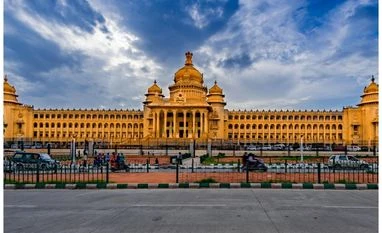A statewide strike on June 22 is being called by the Karnataka Chamber of Commerce and Industry (KCCI) to protest an ‘abnormal increase’ in electricity costs. In today's Karnataka Bandh call, all trade and industry organisations were asked to remain closed.
Vinay Javali, president of the KCCI, stated that the statewide protest would not affect essential services or vehicle movement because the bandh is only for business establishments.
What do officials have to say about today’s ‘Karnataka bandh’?
“We request all the trade and industry to close their establishment on 22 June. This is in protest of abnormal price hike in the electricity charges by ESCOMs," says the industry body.
“For the last eight days, we have attempted to convey the seriousness of the impact of the hike in electricity charges. However, no solution is forthcoming from the officials or government representatives. To draw the attention of the government, we are calling for this Bandh. We wish to find a solution and get a reduction in the electricity charges. We hope that the government will respond to our request," they added.
What is the overview of today’s ‘Karnataka bandh’?
The Karnataka Electricity Regulatory Commission approved the fixed and per-unit charges on May 12 with an increase of 70 paise per unit. The Bharatiya Janata Party (BJP) has accused the new Congress government of raising the tariff in order to fulfil their election promise of free electricity, which has resulted in a political spat.
The agitation will be supported by the District Chambers of Gadag, Bijapur, Rancbennur, Raichur, Talikoti, Vijaynagar, Mysore, Davangere, Koppal, Bagalkoti, Dharwad, Sirsi, Karwar, Bidar, Shivamoga, Kolar, Mandya, Chickmangalore, Yadgir, Chitradurga, KalyanKamataka, Haveri, Hassa and Bellary.
More From This Section
K'taka Power Minister KJ George mentions that "over two crore people in the state can avail of free electricity under the Gruha Jyothi scheme under which all households that use below 200 units of power every month will receive free electricity. Consumers who use more than the allotted units have to pay for the extra units used along with the 9% of tax included in it".
)